How to get a job as a game producer
The GamesIndustry.biz Academy explores the many paths to working in video games production
Finding a job is no easy task. Our guides can help you to find the right path to the games industry job of your dreams. You can read our other in-depth guides on how to get a job in the games industry on this page, covering various areas of expertise.
"People seem to think production is this nebulous, indefinable thing, but it really isn't."
This recent tweet from Silent Games' CEO Sally Blake encapsulates the myths around game production and what it entails pretty well. It's also what prompted the GamesIndustry.biz Academy to look into the field, providing guidance for those who might be tempted by the role but are unsure about what it encompasses.
Blake, who co-founded Silent Games, is a former senior producer at No More Robots and Hammerhead, having previously spent over six years as producer at Ubisoft Reflections. And for her, production comes down to three things.
"You are there to make sure the game is on time, on budget, and at quality"Sally Blake, Silent Games
"You are there to make sure the game is on time, on budget, and at quality," she says. "Day-to-day, I'll be reviewing the project budget, checking we're on track to meet our milestone goals, and making sure the team has all the tools and information they need to do their best.
"As a junior producer, you usually handle more of the micro-level work such as inputting tasks and estimates, making sure the bug/task tracking databases are up to date, booking meetings and so on. As you move up the ranks you tend to look at things on a more macro-level such as defining scope for a large project or multiple projects at one time, as well as coaching and supporting junior producers."
Staff in games production roles sometimes have opportunities to branch into more specialist roles such as data analysis or playtest coordination, Blake notes. But she adds that she actually doesn't know many producers who have chosen to leave the field as it has a broad range of seniority levels.
Mike Anderson, producer at Monument Valley and Alba: A Wildlife Adventure developer Ustwo Games, describes the general career ladder for a producer as production assistant > associate producer > producer > senior producer > lead producer > executive producer.
"Your mileage may vary, but I've also seen people move from production into super prestigious roles, such as heads of studio, CEOs or founding their own studios," he says. "The ceiling for producers is pretty high, basically."
Blake, CEO of a company she co-founded, is the perfect example. She agrees that "the sky's the limit" when it comes to progressing in this career.
"I've seen people move from production into super prestigious roles. The ceiling for producers is pretty high"Mike Anderson, Ustwo
It's a role that can also be interesting in a freelance capacity, once you've made the right contacts and have a bit of experience, notes Farah Coculuzzi, producer at Grindstone developer Capy Games.
"If you're a freelance contractor, once you have a reputation working on one or two projects it's somewhat easy to keep contracts coming in and can be a lucrative career pathway option after a couple of years," she explains.
John Nejady is senior project manager at Lockwood Publishing and former senior producer at Coconut Lizard and associate producer at Sumo Digital and CCP. And if freelance is not for you, he notes that while AAA may have a greater number of opportunities when it comes to game production, indie studios is probably where you should look if you're just starting.
"In my experience the bigger places have so much interest in every role, internally and externally, [that] your chance of getting them is actually lower," he says. "The greater opportunities come from joining small teams who are growing, where you and the team can grow together with you taking more or a production role."
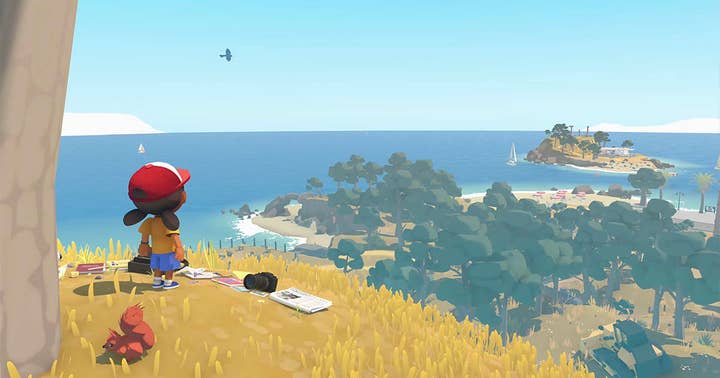
What education do I need to get a job in video games production?
The dominating feeling expressed by our interviewees is that games producer is not a role that requires higher education specifically.
Nejady has a degree in TV and Film Production from the University of Sunderland and says that some of the theory units were useful in "training his eye" and the practical ones "drove home the reality that you have to deliver X thing after Y time." And while he says that this perspective "broadly endures in games," he insists that no specific degree will generally prepare you for a role as a game producer.
"If there is a 'best path', I don't think I know it," he says. "So many fantastic producers I worked with have had incredibly varied pasts from chemists, marketing, history PhDs -- it varies a lot."
Reese Wright, senior producer at games consulting agency Robot Teddy, says they have learnt everything on the job.
"Most great producers are jacks of all trades, masters of none, so a varied education history can really give people a leg-up"Reese Wright, Robot Teddy
"My educational background wasn't stellar -- I was a senior high school dropout," they say. "I wouldn't say that higher education is essential to become a great producer, as many of the people who are truly beloved in the job have great soft skills over strong hard skills. That's not to say there's nothing to be gained from a great educational background. Most great producers are jacks of all trades, masters of none, so a varied education history can really give people a leg-up."
Coculuzzi says she "accidentally" got into games event management while studying Digital Design at the Auckland University of Technology, later leading her to production.
"I volunteered my time to help organise indie dev booths at local game events and helped out with conferences local to New Zealand. I realised later on that the skills I picked up from volunteering can be applied to junior game production roles, so that was the pathway I started pursuing. By the time I graduated, I luckily had built up a network in the NZ and Australian games industry. In 2017, I got my first official games job as an associate producer working on a mobile title in Melbourne."
But while higher education is not a must, some training can be really useful to the role. You can seek it prior to looking for production positions or it is sometimes offered as part of personal development plans at some studios.
"Some form of project management training will go a long way, be it Agile/Scrum, Prince2, or Waterfall," Wright says. "Having an understanding of different methodologies can be super helpful."
Blake, who initially studied animation, describes her own learning of Agile/Scrum principles as "foundational knowledge" but adds that you "can be an excellent producer without doing any expensive courses."
"The best producers I know don't have a bunch of degrees, but have had the chance to experience a few project life cycles"Mike Anderson, Ustwo
Anderson adds: "The only 'production' related qualification I have is one I got after moving into production/on the job, and it's a Scrum Master Certification from the ScrumAlliance. I personally don't think there's any academic course which can sufficiently prepare you for the sorts of challenges you'll encounter in production daily. The best producers I know don't have a bunch of degrees, but have had the chance to experience a few project life cycles, and have learnt so much through the first-hand development experience they've had.
"I just feel that there's only so much you can teach about game production without actually experiencing it. A lot of project management courses I've seen are based on super defined problems with only one solution, and let me just say right now, that is not how games get made at all. Unless I've been doing it wrong all along."
Coculuzzi says that "aside from some light touches on Jira and Trello practices in one of [her] University papers," she doesn't have any specific training related to games production.

"I don't think a production-focused education is necessary for becoming a producer, and I think having knowledge on other areas in games (and even outside of games) can make you a better producer, as it teaches you how to communicate with the rest of the team on the aspects they're working on," she says.
"I do recommend learning different project tracking softwares through online courses, and looking up how they're used in studio environments. People are also usually super friendly in the games industry and happy to answer any questions you might have about production practices."
Nejady adds that he was recently asked by a budding producer if they should do an Agile or Prince2 course to become a producer, and says that neither is right nor wrong.
"Having one, or the other, or both, is no guarantee that you will get a job, or make the right decisions when you get there," he continues. "As a producer there's a huge variety of things you might need to do, and I think no single course can really cover it. Each course can give you another tool in your toolbox, but at any given moment you might need to use any combination of the tools in your box, some you might have learned on a course, or others you might have gleaned during some casual conversation in passing with someone."

What experience do I need to get a job in video games production?
As made abundantly clear by our interviewees, games production might be a good fit for a variety of people depending on which transferable skills they have. So, much like recommending any specific education is impossible, there is not one straight path to follow when it comes to experience.
"With production, it does seem to be one of those paths that are more 'wiggly' and have a lot of routes to entry, more so than some other disciplines," Blake says. "I know a lot of producers that build skills in QA first. However, now there does seem to be a few more junior level production opportunities and internships. I think production is becoming more recognised as a role that is necessary for a team to succeed; in the past it was seen as a luxury. Just getting any kind of experience as a team leader is really helpful -- for example, in your university in [group] projects or as part of a game jam."
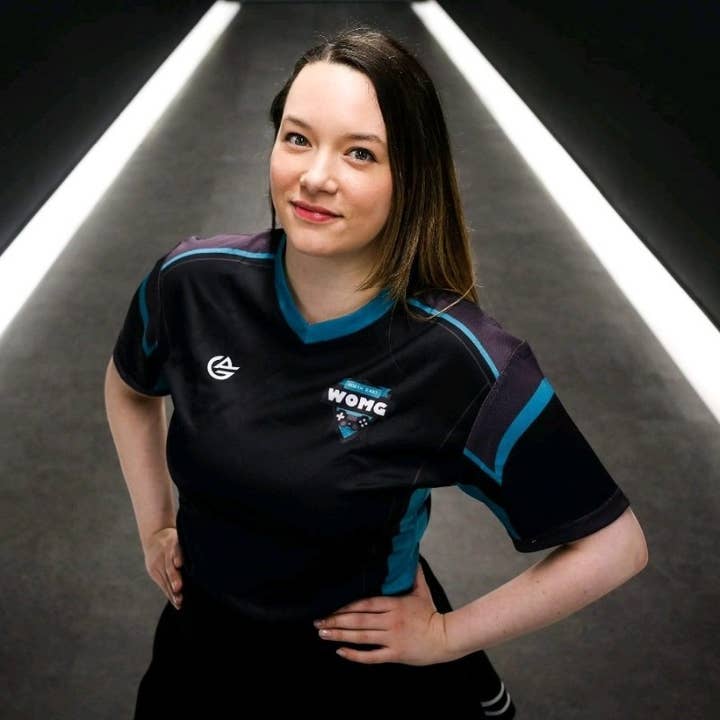
Four out of the five people we talked to for this guide had their start in production through QA. Anderson notes that progressing through the ranks of QA prepares for various aspects of a production role.
"As QA lead I used to have a small team to manage, reports to write and spent a lot of time working in spreadsheets, all of which are parts of my job now, though everything is a bit bigger now," he says. "This is of course not a guaranteed route into production, but by first getting a role in a studio, you will at least get exposure to what people working in your dream role do day-to-day, and from there you can decide if that's where you'd like to be."
Wright worked in quality assurance for 11 years before fully becoming a game producer.
"QA taught me a lot about how games get built, the whole release process, teamwork, and project management, all of which have been essential knowledge during my time as a producer," they add.
"People move to production from many different areas, be it QA, art, coding, marketing -- anywhere can be the birthplace of great producers"Reese Wright, Robot Teddy
"QA is a good place to grow into production as it's generally a department that has a lot of interaction with producers and several similarities in structure once you get up to QA/team management level. I couldn't say that is the 'best path' to becoming a producer though; people move to production from many different areas of the games industry, be it QA, art, coding, marketing -- really anywhere can be the birthplace of great producers."
So any experience in the games industry will be good experience, to show an understanding of the development cycle. There are a lot of transferable skills from other industries too, so your past work experiences might be more relevant than you think.
"A lot of producers I know have gotten their first games production roles not by directly working on games at the start of their career," Coculuzzi says. "I think a lot of organisational, people and project management skills from other industries can be easily applied to games. So, if you're in a producer-type role in another industry and want to move into games, I'd say just go for it and be pretty open about your background during game job interviews."
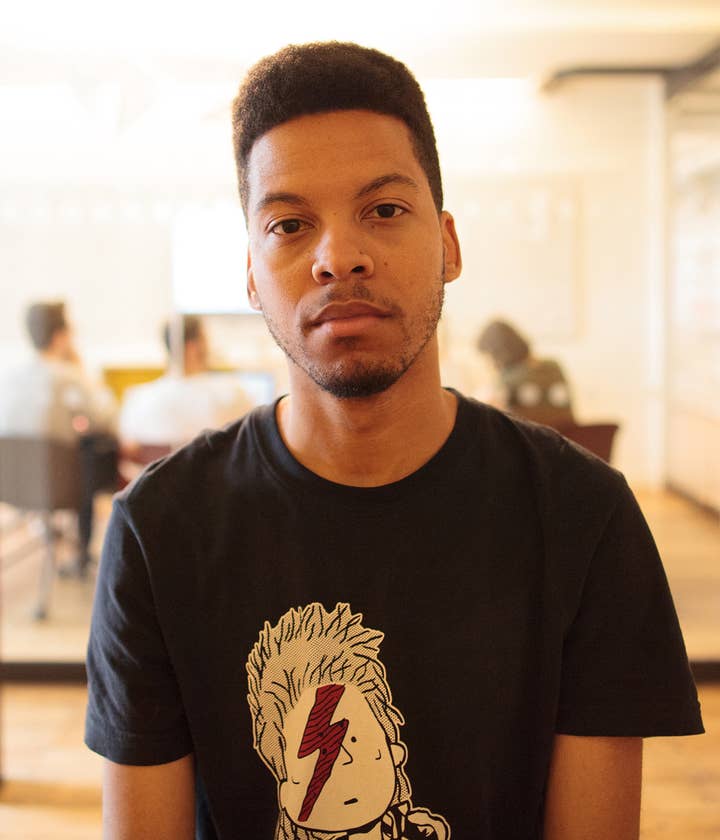
Anderson adds that even something as simple as being good with emails can directly help you in the role.
"The entry-level production roles you'll want to be looking for are production assistant or assistant producer, neither of which should have too high requirements for applicants," he says. "Sometimes I see these roles ask for a significant amount of production experience, which I think is wrong as a requirement. That being said, I think you should still apply to those roles even if you don't have industry experience, as I'm not aware of any other routes directly into production with lower barriers to entry than that."
Nejady offers a prime example of how valuable skills can even come from sectors far, far away from the games industry: "At 17, I joined the merchant navy and trained as a deck officer for around four years. As part of that I had formal management training, and was part of a very well structured management hierarchy -- from the captain, to us, to the crew -- as part of which I helped to manage the work of teams of people of all ages, from across the globe."

What qualities and skills do I need to be a game producer?
Soft skills are at the top of the list of qualities needed to be a good games producer. As Wright puts it, "it's more of a mindset thing."
"Do you love planning things? Do you like helping people? Are you someone who naturally keeps a lot of metaphorical plates spinning? Do you love to learn? Then you might be a great producer," they say.
- You need to be a team player with excellent communication skills
Blake has been involved in the recruitment process at AAA and indie studios, so she has a clear picture of what she looks for in a producer. When asked about the skills needed, she says it's instinctually easiest to talk about the most practical examples of things to learn.
"How to use bug tracking software, how to create budgets, how to build a project roadmap and timeline," she lists. "All of those are vital skills but are secondary to the ability to make a team feel like they are heard, understood, and supported.
"Putting a list of tasks in Jira is one thing, but working with leads and directors to make sure the game is actually good is another"Sally Blake, Silent Games
"I'm looking for someone who is team focused and thinks about the quality of the game and how our players will feel playing it," she continues. "So basically, someone who has the ability to look at the bigger picture and understand what quality looks like -- putting a list of tasks in Jira is one thing, but working with leads and directors to make sure the game is actually good is another. The best producer's cast aside their ego to get the absolute best decision for the game and team, whether it's something they suggested or not."
Anderson adds that it goes beyond just supporting and being a part of the team. Producers are really the glue that keeps the whole team together, so you need to do so with the right attitude.
"Producers help create the culture of a team, and your team members will feed off your energy, so someone who is upbeat and enthusiastic about things will help foster a healthy environment in which to make games," he says. "Something I personally find really important is to be honest. I'm a pretty transparent person, and I think that helps to build trust between myself and my team.
"I don't really care if someone doesn't know X software or tool, as that can always be taught, but as far as I'm aware, there's no course or degree you can take in not being an arsehole. It's much more valuable for me to see how a person interacts with others. Do they help create an environment where people are comfortable being honest, do they show inquisitiveness? You don't have to be a full on extrovert, just need to show a genuine interest in things and a desire to learn, and I'll be sold on you."
"I don't really care if someone doesn't know X tool, as that can always be taught, but there's no course you can take in not being an arsehole"Mike Anderson, Ustwo
Needless to say that this all requires strong interpersonal and communication skills.
"You're almost always interacting with people 80% of your day as a producer, so good interpersonal and emotional intelligence skills come first," Coculuzzi says.
Nejady adds: "I think you need to understand people. Be a good listener, emotionally intelligent, a good organiser, and a good motivator of people. The whole job, whether it's managing those above you, working things out with people outside of your organisation, or those on your team, is people. If you can get an understanding of what motivates people, the pressures they are under, their hopes, dreams and fears, you can go a long way to helping work out outcomes that are helpful and productive for all."

- You need to be a problem solver
Problem solving is a massive part of the game producer role, Anderson points out, highlighting the necessity to "approach issues with a can-do attitude." Being able to identify problem areas later down the line is also crucial, Coculuzzi adds, though she says it's something you can also learn as you go.
"Another skill is knowing how to adapt your team and project's situation as you need," she continues. "Things never go 100% planned in games. Lastly, knowing how your game works inside out will help you communicate with your team and understand the project a lot better."
"Knowing how your game works inside out will help you communicate with your team and understand the project a lot better"Farah Coculuzzi, Capy Games
Another aspect of being adaptable and having that can-do attitude is being autonomous, which is crucial in production.
"Even as a junior you don't always have people handing tasks to you," Blake says. "So you need to recognise what needs to be done and get it done. Taking initiative and making suggestions for improvements to processes and pipelines is always a bonus.
"There are times where decision paralysis is worse than getting something wrong, so someone who can admit to their past mistakes and learn from them is ideal."
- You need to be able to cope under pressure
Game production is often in the eye of the storm when something goes wrong, meaning you also need to be resilient and cope well with failure.
"Key things like grace under pressure, being able to read a room and guide a team to follow a plan, being able to communicate clearly, and being comfortable with change -- these are essential skills producers need every day," Wright says.
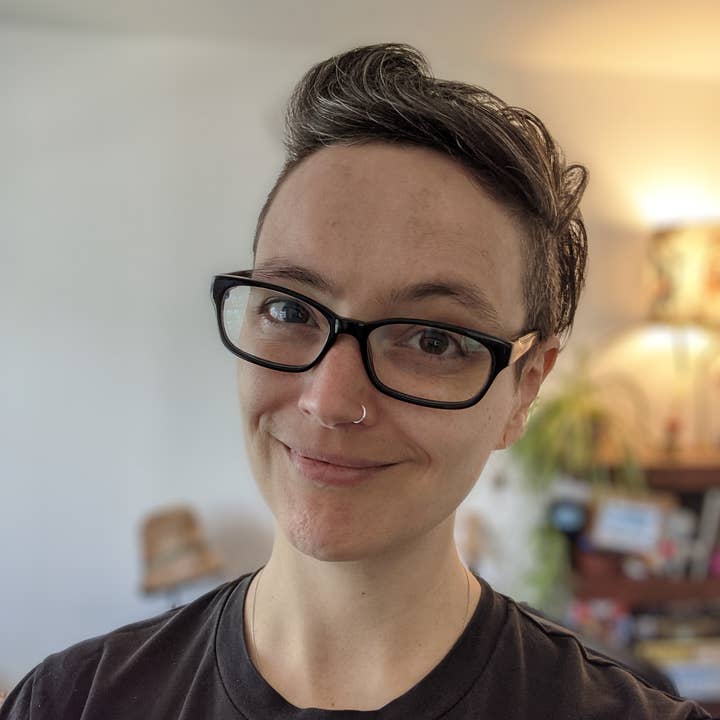
Because the work of a team will be linked to your decisions and your ability to react to stressful situations, it's really essential to be able to remain calm, collected and level-headed as a games producer.
"[An] important lesson, which applies to anyone in a leadership position, is learning how to cope under pressure and how to manage your emotions while still maintaining a good level of honesty and vulnerability," Blake says. "The way you perceive a situation can really affect team morale and getting that balance right is really key. It's not always easy to do in a stressful situation, but the team look to you to make decisions and support them when they are struggling, so you need to be a person that can deal with crisis effectively.
"Producers just end up being the person people go to if they are genuinely struggling with something at work or if they need time off because, you know, life is like that sometimes. I didn't know that would be part of the role when I started, but it's genuinely a privilege to be able to support someone in those moments."
While coping under pressure is crucial, always remain aware of your limits as well, Wright points out.
"Try to have a good understanding of your limits, and don't be afraid to say when you're at them"Reese Wright, Robot Teddy
"Try to have a good understanding of your limits, and don't be afraid to say when you're at them," they say. "It's very easy for producers to take on everything because they want to keep all the things running as smoothly as possible, and this can often come at a personal cost. It's okay to say 'enough is enough', honestly."
- You need some hard skills, too
While soft skills are at the core of production, it's not to say there's no hard skill needed. Most of them can be learnt on the job, but it doesn't hurt if you already have some of these.
"One skill I highly recommend is becoming friends with spreadsheets. Learn a few basic formulas, like IF statements, INDEX(MATCH), using AND and OR, SUMIFS, COUNTIFS. Honestly, it'll make life a lot easier if you can semi-automate your planning spreadsheets to update everywhere whenever one thing changes," Wright says. "Or go next level and learn VBA or even SQL if you really want to level-up your usefulness."

What are the common misconceptions about games production?
Like all jobs, game production comes with a bunch of myths and misconceptions that are always useful to recognise before taking a path towards this career.
One persistent myth is the false impression that production is about "telling people what to do," Anderson says.
"It generally tends to work more like this: your team tells you what they would like to do, and you (using your spreadsheets and other tools) help them cut that down to the amount of work they actually can do," he explains. "It's usually much more of a supportive role than you may think it is. There are also a lot of unglamorous aspects of game development which you will end up doing as a producer, and sometimes these are thankless tasks."
"If you want to be a producer because you want to 'be the boss', or 'be the one who makes all the decisions', get that out of your head"John Nejady, Lockwood Publishing
Nejady adds: "If you want to be a producer because you want to 'be the boss', or 'be the one who makes all the decisions', I'd say get that out of your head. Producers like that definitely do exist, but in my experience [they] are the ones with unhappy teams, who are crunching, and ultimately harming the ability to help the team deliver the best possible work.
"In my experience the best producers and leaders in general exist to support the talented individuals who are on their teams. By caring for, trusting and supporting our teams we give them the best chance to do good work, maintain positive productive relationships, and be happier and more effective project managers ourselves."
Another misconception is that production is "all spreadsheets" and that you have to love numbers to be a good game producer, Blake says.
"I love neither spreadsheets nor numbers but manage okay," she says. "There are tons of tools out there to automate things and to be honest it's usually more practical to make use of them.
Coculuzzi points out that the idea that you "need to know how to use fancy softwares from the get-go" is also a false impression: "In reality we all learn new tools and project management software on the job," she says.
Finally, Wright highlights that not all producer roles within games are the same, unlike what many seem to think.
"For example, there is a world of difference between the knowledge needed to be a publishing producer vs a development producer -- and having done both, I can attest that it is not an easy switch to make between them," they say. "Some producers are very hands-on and have a great deal of control when it comes to game direction, while others believe their job is to facilitate others to make that direction. Personally, I'm in the latter camp. There is no 'one-size-fits-all' description of what producers do or need to be like."
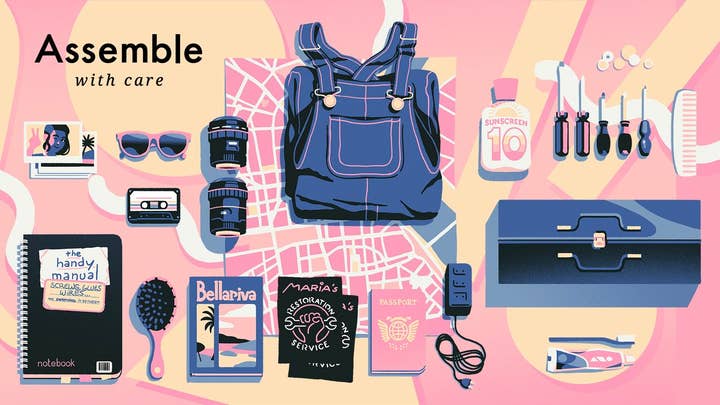
Advice for new and aspiring game producers
- Embrace your mistakes
When asked whether there's anything they'd do differently if they could change something about their first experience as a games producer, Wright is unequivocal: "Not at all."
"Sure, I've made some silly mistakes along the way, but I learned a lot from them -- don't be afraid of messing up because it can be a really valuable experience," they say. "Horrifying at the time, maybe, but never all that bad afterwards."
That's a sentiment that was echoed by all the interviewees when asked for advice for new and aspiring game producers: don't be afraid of making mistakes. And if you do, learn from them and move forward.
"Once I was made producer [at CCP], I was given ownership of yet another thing to deliver -- demos for the Sony and Oculus booths at E3, shortly after the latter was acquired by Facebook," Nejady says. "My first act was to call a meeting for those who would be contributing to the demos. I ended up inviting probably double the number of people who needed to be there, and having zero agenda for it. It was a mess, and ultimately a waste of many people's time. I should have kept the numbers lower, and hosted the meeting with a more focused agenda.
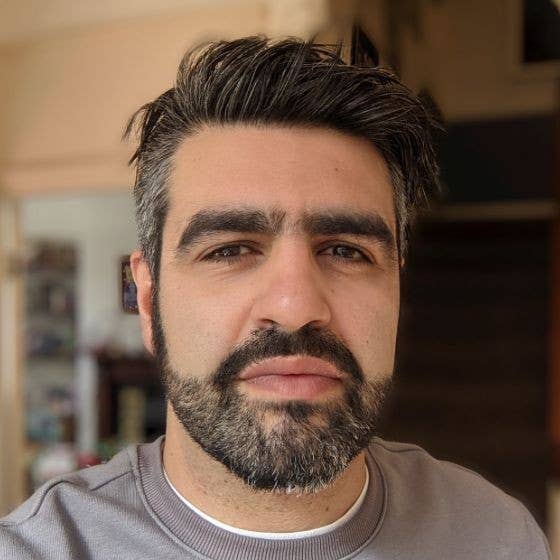
"Looking back on that period and the end of that project, I think I definitely allowed the pressure I was feeling to manifest itself unhealthily; for myself and the team. I think I definitely allowed egotism and arrogance to become prominent aspects of my being, and this probably in some way harmed the project and my relationships with some team members. Admittedly I would have benefited from more support, but ultimately I feel the responsibility for that lies with me. I'm glad I had those eye-opening experiences within my first year as a producer."
Anderson says that "having things go wrong and then fixing them is pretty much the job in a nutshell."
He continues: "If you're too worried about doing things wrong, you'll be severely hampering your ability to learn. Production to me is a lot about identifying a problem, fixing that problem, and then setting up a process so that problem will hopefully not happen again. Then it's just a matter of time before a new problem appears, and you go through the steps again. After repeating this process a few times, you'll become more comfortable with things not quite going to plan, and be more confident with your ability to solve problems."
- Find resources to learn more
Whether you're just starting or are looking for a job, there's a wealth of resources available to game producers online, and you should make the most out of it.
"Websites like Skillshare have some great production tutorials," Coculuzzi says. "I'd also recommend checking out GDC talks, as well as finding game producer groups on Slack and Discord for interesting discussions and resources that get shared there."
"If you're too worried about doing things wrong, you'll be severely hampering your ability to learn"Mike Anderson, Ustwo Games
When it comes to GDC talks, Nejady particularly recommends the 2016 session "Super Producers: Build Your Leadership and Make Great Games" by Gearbox Software's Aaron Thibault, while Anderson points out that the event has a YouTube playlist dedicated to game production that is well worth exploring.
Nejady also points in the direction of this Twitter thread he put together, sharing useful resources.
Wright highlights a great "one-stop-shop for production reading resources" found on Trello, compiled by Dan Bergin-Holly, production director of Fortitude Games.
Blake writes a video games production-focused blog, +1 Wisdom, with advice aimed at students, new producers and veterans alike. She also has book recommendations that you can find on her Twitter.
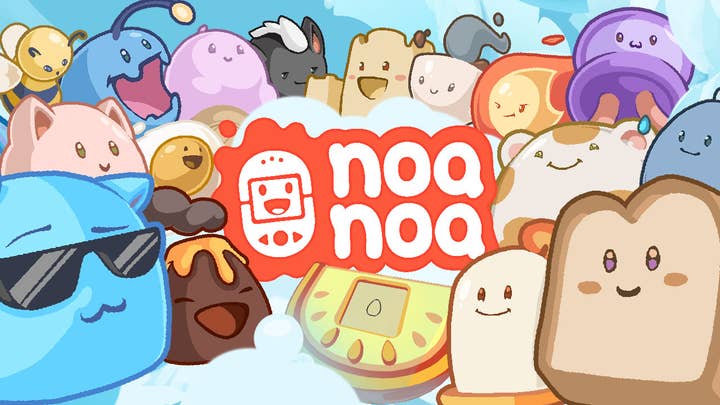
- Ask questions and reach out to game producers
If you're only just starting as a games producer, don't be afraid to ask questions to other team members and seek advice from your peers.
Looking back at her first experience, Coculuzzi says she "would've liked to ask more questions about things that [she] thought were pretty obvious at the time, especially during project onboarding."
Wright adds: "Talk to other producers as much as possible to learn which type of producer you want to be -- producers are by and large a helpful lot, and are usually happy to answer questions if they're not too super busy."
"Trust your gut instinct, listen and don't give up"Farah Coculuzzi, Capy Games
Blake adds that, when speaking to producers currently in the industry, you should try and find out about what their role and responsibilities are.
"I know it can be tricky, but an internship or work experience at a game studio is worth its weight in gold," she says. "Production processes and strategies are changing all the time, which is why talking to people in industry is really useful as you'll always have the latest."
Finally, Coculuzzi highlights the importance of just trusting yourself and remaining resilient in what is a very competitive industry.
"Trust your gut instinct, listen and don't give up. A lot of entry level production jobs ask for one or two shipped titles. I think that is pretty unrealistic for new people in our industry, and if you see a position that you like I say totally go for it and apply. You never know what'll happen!"
More GamesIndustry.biz Academy guides to Working in Games
Our guides to working in games cover various perspectives, from hiring to retention, to landing the job of your dream or creating the right company culture:
